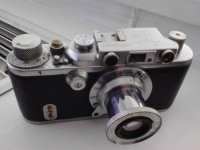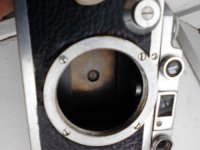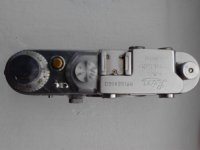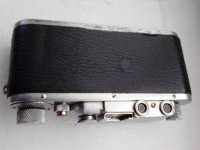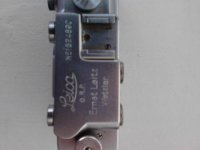archive59
Established
The first Leica I used was a II, no. 23010. It was an upgrade of an earlier camera. This and Mortimer Street during WW2 are believable explanations. Hard to tell without seeing/handling the camera.
Afterthought: The Russians made "bitzas" too. Even when the cameras were still (reasonably) current.
Second afterthought: It was not unknown for Leica factory staff to "win" parts, especially rejects (a badly engraved shutter speed dial, maybe? And a very old body? And bits that had been replaced during upgrades/rebuilds?). Perhaps this was made by someone who couldn't "win" quite enough parts... Such "winning" had to be clandestine...
Cheers,
R.
When I used to work for a well known British company in the aerospace industry (I think I may have given away the name there) I knew of people who "won" aircraft parts. Who knows what they managed to build in their shed.
Back to the camera. It certainly 'feels' more like my other Leica than my FSU cameras. Your suggestion is certainly a possibility. I can see me having to take the top off to make any more progress. 🙂



